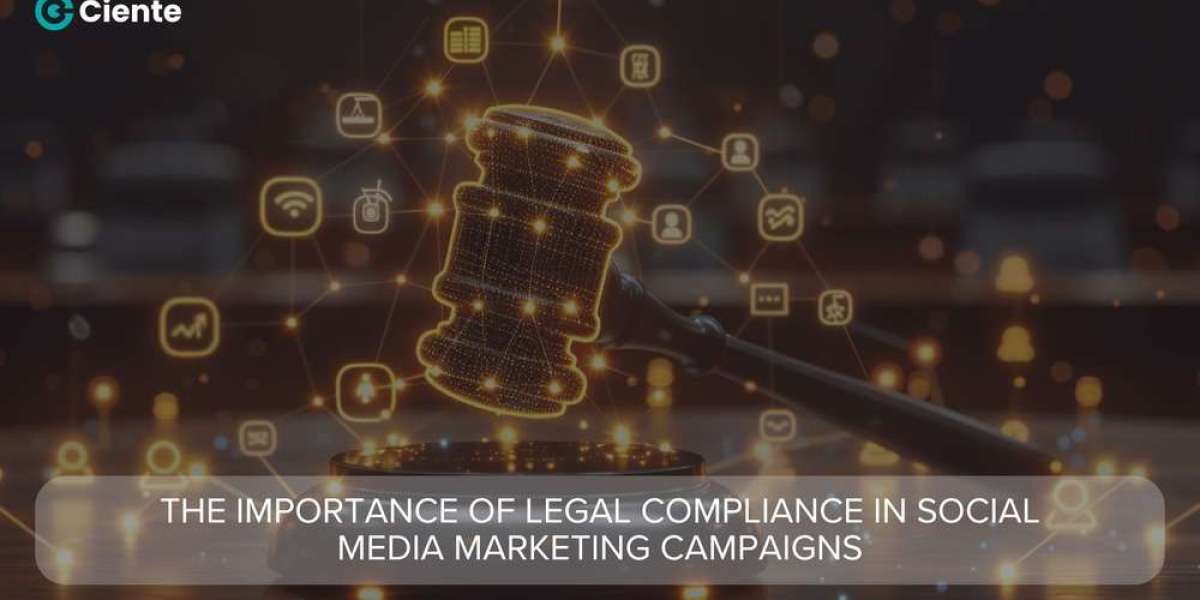In today's digital age, social media has become a powerful tool for brands to reach their audience, build relationships, and drive business growth. However, as the use of social media in marketing grows, so does the need for legal compliance. Understanding and adhering to legal guidelines is not just a matter of avoiding lawsuits—it's also essential for protecting your brand's reputation and ensuring long-term success. This blog will explore the importance of legal compliance in social media marketing campaigns, with a focus on prevention strategies and the role of infotech in safeguarding your brand.
Understanding Legal Compliance in Social Media
Legal compliance in social media marketing involves adhering to laws, regulations, and industry standards that govern how businesses interact with consumers online. These regulations cover a wide range of issues, including advertising practices, data privacy, intellectual property, and consumer protection. For instance, the Federal Trade Commission (FTC) in the United States requires that all sponsored content be clearly labeled as such to avoid misleading consumers. Similarly, the General Data Protection Regulation (GDPR) in Europe mandates strict guidelines on how companies collect, store, and use personal data.
Failing to comply with these regulations can result in severe penalties, including fines, legal action, and damage to your brand's reputation. Moreover, in the age of social media, any misstep can quickly go viral, amplifying the negative impact on your brand.
The Role of Prevention in Legal Compliance
Prevention is the cornerstone of legal compliance in social media marketing. By implementing preventive measures, brands can avoid potential legal pitfalls and ensure that their marketing campaigns are not only effective but also legally sound.
1. Educate Your Team
The first step in prevention is education. Ensure that everyone involved in your social media marketing campaigns—from content creators to marketing managers—understands the legal requirements that apply to their work. Regular training sessions can help keep your team up-to-date on the latest regulations and best practices.
2. Develop Clear Policies
Having clear, well-documented policies is crucial for maintaining compliance. These policies should outline the legal guidelines that your team must follow, such as how to disclose sponsored content, how to handle customer data, and how to respect intellectual property rights. Make sure that these policies are easily accessible to your team and regularly reviewed to reflect any changes in the law.
3. Monitor and Review Content
To prevent legal issues, it's essential to monitor and review your social media content regularly. This includes ensuring that all posts are compliant with advertising regulations, that customer data is handled according to privacy laws, and that no copyrighted material is used without permission. Tools like social media management platforms and content auditing software can help automate this process and reduce the risk of human error.
Infotech's Role in Legal Compliance
Infotech, or information technology, plays a critical role in helping brands maintain legal compliance in their social media marketing campaigns. By leveraging the latest tech publication, companies can implement sophisticated systems that monitor compliance in real-time, flag potential issues, and automate reporting processes.
For example, artificial intelligence (AI) can be used to analyze social media posts for compliance with advertising regulations, automatically flagging any content that may violate the law. Additionally, AI-powered tools can help brands manage customer data in compliance with privacy regulations, ensuring that data is collected, stored, and used securely.
Furthermore, infotech solutions can provide brands with detailed analytics and reporting capabilities, allowing them to track their compliance efforts and make data-driven decisions to improve their marketing strategies. By integrating infotech into their compliance processes, brands can not only prevent legal issues but also enhance their overall marketing performance.
The Consequences of Non-Compliance
Failing to comply with legal requirements in social media marketing can have serious consequences for your brand. The most immediate consequence is the risk of legal action, which can result in hefty fines and legal fees. In addition, non-compliance can lead to damage to your brand's reputation, loss of consumer trust, and a decline in business performance.
For example, if your brand is found to be using customer data without proper consent, you could face legal action under privacy laws like the GDPR. This could result in fines that amount to millions of dollars, as well as damage to your brand's reputation that could take years to repair.
Moreover, non-compliance can also result in your brand being banned from social media platforms, further limiting your ability to reach and engage with your audience. This can have a significant impact on your marketing efforts and overall business success.
Conclusion
Legal compliance is a critical aspect of social media marketing that should not be overlooked. By understanding the legal requirements that apply to your campaigns and implementing preventive measures, you can protect your brand from legal issues and ensure long-term success. Additionally, by leveraging infotech solutions, you can enhance your compliance efforts and improve your overall marketing performance. In today's digital age, legal compliance is not just a matter of avoiding lawsuits—it's a key component of building a successful and sustainable brand.







